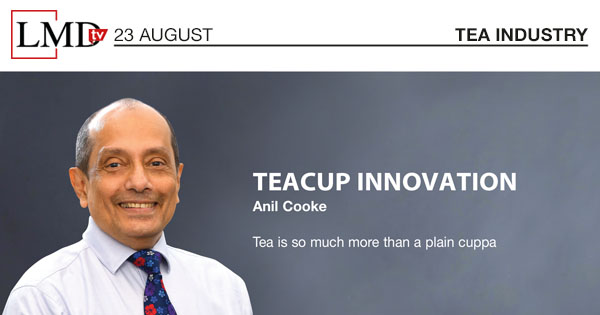 Sri Lanka’s insurance sector has over a century of experience under its belt. Yet, the island’s insurance penetration remains far below its regional neighbours.
Sri Lanka’s insurance sector has over a century of experience under its belt. Yet, the island’s insurance penetration remains far below its regional neighbours.
In a recent LMDtv interview, the Deputy Chairman of Janashakthi Insurance Prakash Schaffter offered an optimistic view on this: “It gives insurers an opportunity to expand their business.”
“Unfortunately, the insurance sector has not been able to crack the code,” he stated, pointing to several challenges including difficulties faced by insurance companies in ensuring renewal and continuity of policies.
He attributed this to the Sri Lankan mindset: “We have an island mentality as our people are easy going, laid back and have a ‘will never happen to me’ syndrome. Therefore, selling insurance – especially life insurance – has proved to be a challenge.”
Nevertheless, Schaffter remains hopeful that “the insurance sector will be able to make a bigger contribution to the nation’s progress.”
Despite the low penetration levels, life insurance products and the needs of consumers have evolved. “They have moved from what was – maybe many decades ago – a plain vanilla life insurance product that paid out if you died to a combination of protection and savings,” he observed.
Schaffter elaborated: “Today’s consumer is more focussed on the savings component and choice of insurer. So insurance companies have also evolved their skill sets and moved from protection-based products to more wealth management solutions. We have improved our skills in managing people’s wealth and providing them with optimum returns.”
He also spoke about several changes that have taken place among life insurance customers in Sri Lanka, adding more segments to the mix – beginning with the rapidly expanding middle-class category of consumers.
Moreover, the increase of women in the labour force is paving the way for another emerging segment.
Schaffter noted: “Traditionally, insurance has been thought of as a product for the head of the household to provide. Perceptions wise, it was thought that insurance is for males; but no longer – women are contributing equally to the country’s economy. And even at the household level, their contribution is immeasurable. So they too would need life insurance.”
Another emerging and prospective segment is Gen Z with Schaffter noting that “they don’t have the patience to sit and go through a long process to buy anything, let alone insurance.”
He added that the traditional insurance model of visiting people’s houses and meeting face to face to make a hard sell will not work for these consumers. “If we are going to cater to this generation, we have to be nimble. We must be really agile, and get things done accurately and speedily,” he emphasised.
Schaffter stressed the need for digital transformation. While this movement has been kick-started in the sector, it needs more work.
He elaborated: “Technology is the way forward. And there is technology out there. So it’s how you deploy and harness it in your organisation that matters. I am confident that the insurance sector will, over the next five to 10 years, become more nimble and agile.”
Janashakthi Insurance’s Deputy Chairman also shared his thoughts on the role of ethics and civic-mindedness in the business of insurance: “I don’t think ethics is something that we can compromise on because it isn’t an ‘either or.’ For me, ethics is the bedrock – the foundation – of everything you do.”
He explained: “If you look at the concept of being civic-minded, insurance by its very nature is something that provides protection to people. So as far as being civic-minded is concerned, we’re conscious of this and try to do the little that we can. While we cannot transform a country, we’d certainly select the areas that we want to make a difference in and would do our part.”
“It helps that civic-mindedness is ingrained in the concept of insurance,” Schaffter noted.





